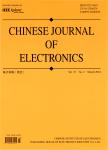Valid Incremental Attribute Reduction Algorithm Based on Attribute Generalization for an Incomplete Information System
Valid Incremental Attribute Reduction Algorithm Based on Attribute Generalization for an Incomplete Information System作者机构:DaZhou Industrial Technology Institute of Intelligent Manufacturing School of Intelligent Manufacturing Sichuan University of Arts and Science
出 版 物:《Chinese Journal of Electronics》 (电子学报(英文))
年 卷 期:2019年第28卷第4期
页 面:725-736页
核心收录:
学科分类:12[管理学] 1201[管理学-管理科学与工程(可授管理学、工学学位)] 081104[工学-模式识别与智能系统] 08[工学] 0835[工学-软件工程] 0811[工学-控制科学与工程] 0812[工学-计算机科学与技术(可授工学、理学学位)]
基 金:supported by the Key Projects of Sichuan Education Department(No.18ZA0419 No.18ZA0421)
主 题:Attribute reduction Incremental learning Incomplete information system Rough set Conditional entropy
摘 要:Attribute reduction, also known as feature selection, is a vital application of rough set theory in areas such as machine learning and data mining. With several information systems constantly and dynamically changing in reality, the method of continuing the incremental attribute reduction for these dynamic information systems is the focus of this research. In an incomplete information system, the increasing form of attribute sets is an important form of dynamic *** this paper, the definition of conditional entropy is first introduced in the incomplete information system,and for the circumstances of the dynamic change of the attribute sets, two types of incremental mechanisms of the matrix and non-matrix forms based on conditional entropy are subsequently proposed. In addition, on the basis of the two incremental mechanisms, the incremental attribute reduction algorithm is given when the attribute set increases dynamically. Finally, the experimental results of the UCI(University of California Irvine) datasets verify that the two proposed incremental algorithms exhibit a superior performance with regard to attribute reduction when compared with the non-incremental attribute reduction algorithm, which in turn is superior to other relative incremental algorithms.



